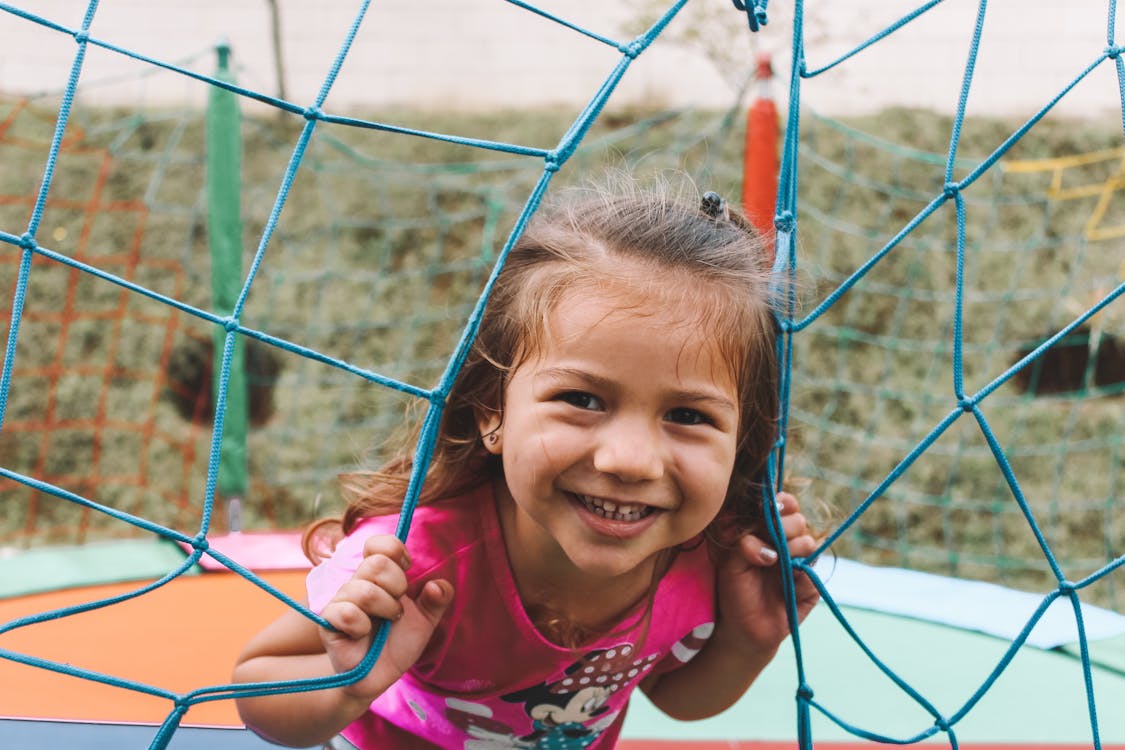When thinking about jobs, students with disabilities may worry they won't find a good fit. The strong message in high school (or even earlier!) is students must get bachelor's degrees. But college isn’t for everyone — regardless of ability.
And that's OK!
There's no one-size-fits-all way to get to a great future. For example, trade or vocational schools offer focused, career-driven education full of opportunities.
Read on to learn more about applying to and attending trade school as a disabled student.
Skip to popular topics on this page: Benefits of Trade School for Students With Disabilities | How to Find the Right Program and School | Transitioning to Postsecondary Education | Paying for Trade or Vocational School | Accommodations and Support for Students with Disabilities | Building Your Trade School "Success Team" | What Rights Do Students with Disabilities Have? | Career Planning for Students with Disabilities
Benefits of Trade School for Students With Disabilities
Trade schools can provide the perfect learning environment for students with disabilities. Programs tend to focus on a subject the student is passionate about rather than a wide variety of topics. They also often have hands-on learning with small class sizes and short timelines.
How to Find the Right Program and School
The school you attend can have a massive effect on your future career. But, making sure you choose the right one can be tricky. Living with a disability can make it feel harder still. Only you know what your perfect school and program would look like.
Keep the following points in mind when browsing to make the choice a little easier.
Is the Subject Right for You?
Studying something you're passionate about can give you a great head start. Think about where your strengths lie and what excites and inspires you.
Consider whether the job you wish to pursue has any hurdles you might need to jump, and if so, how you will do that.
You can also speak with professionals to learn more about the day-to-day reality of life on the job. Online forums, social media groups, and trade organizations can help you meet them.
Is the Program Up to Date?
When browsing programs, dig into each school's catalog to see what it covers. Some may be more hands-on, whereas others focus on classroom learning.
It's also crucial that the school is up-to-date on industry trends, techniques, and laws.
Ask when the curriculum was last updated and about any links the school has to local businesses. This could be vital when you're looking to set up internships or other work experience.
Is the School Accredited?
Accreditation is another important consideration by relevant organizations or government entities. Accredited schools must prove their classes, facilities, and faculty meet high standards.
Not only is accreditation a mark of quality, but it also affects other parts of the school experience. For example, without accreditation, schools cannot offer federal financial aid.
Not all trade programs are accredited because it's a costly process. Further, many beauty schools aren't accredited but have the state's approval.
Does the School Provide Resources for Students with Disabilities?
The Americans with Disabilities Act (ADA) requires schools to accommodate students with disabilities. But, especially in postsecondary schools, students may need to seek accommodations out.
Don't be nervous to ask schools how they help students with disabilities. If they don't have rules in place, you may find they're less equipped to serve your educational needs.
See our Resources and Support for Students with Disabilities section for information about what schools can do.
Does the Faculty Provide Adequate Support?
A faculty who cares for students and provides them with support is another sign of a great school.
Schools can show their support in many ways. For instance, they can ensure students with disabilities have academic and career help. Schools can also train teachers in working with students with needs.
Some schools hire specialized staff to work with disabled students. Again, don't be afraid to ask your prospective school more about this when making your choice.
Transitioning to Postsecondary Education
As Benjamin Franklin once said, "failing to plan is planning to fail." Going from high school to postsecondary education is exciting, but it can be daunting, too.
The earlier you start preparing, the smoother the process should be. The Individuals with Disabilities Education Act (IDEA) recommends students start planning for postsecondary education in middle school.
But, if you haven't considered your move until now, don't worry too much — there's still time!
Many high schools have resources to help with the transition to postsecondary school. Be sure to ask your teachers, support workers, and other caregivers for help.
In addition, there are many things you can do yourself to make the move easier. For example:
- Think about your strengths and understand your learning style. Is there anything you'd like to improve or work on before you advance to the next level of education?
- Brush up on social and personal skills, like confidence, time management, and communication.
- Know how and when to discuss your needs and how to ask for accommodations. Learn to speak and act on your behalf, ask for help when needed, and make informed decisions.
- Read up on your rights as a student with disabilities
- Keep your personal, medical, and educational records up to date.
- Hold on to examples of work you're proud of.
- Take part in activities and courses that might help your application to trade school.
Comprehensive transition and postsecondary (CTP) programs and funding are also available for students with intellectual disabilities. These allow those students to participate in traditional college courses and student life.
Paying for Trade or Vocational School
Trade schools typically offer shorter, less expensive programs than traditional four-year colleges. Additionally, several financial aid options are available to students with disabilities. These include federal aid, grants, student loans, scholarships, and more.
The first step toward getting federal financial aid is completing a Free Application for Federal Student Aid (FAFSA). Completing and submitting the FAFSA gives you access to federal support. Plus, many states, colleges, and private providers also use the information to determine your eligibility for other aid.
Student Loans
You might be offered a student loan when applying for federal financial aid. This money must be paid back, usually with interest.
There are a variety of different federal student loans available, including:
- Direct Subsidized Loans based on financial need
- Direct Unsubsidized Loans not based on financial need)
- Direct PLUS Loans help pay for education expenses not covered by other financial aid
- Direct Consolidation Loans allow you to combine all your student loans into one
For more information, visit the federal government’s Student Aid website. You may also want to compare loans from banks, credit unions, and other institutions.
Grants
While loans must be repaid, grants are typically given without needing repayment.
But, there may be some situations where a grant does need to be repaid.
For example, if you get a grant based on completing an obligation and fail to do so, you may owe your grantor.
A variety of grants are available for students with disabilities, including federal Pell Grants (open to all students), Landmark College grants (specializing in students with dyslexia, ADHD, and ASD), and the federal TRIO Student Support Services program (for low-income students, students with disabilities, and first-generation students). The requirements for each grant varies, so research your options before applying.
Scholarships for Students with Disabilities
While grants and scholarships don't need to be repaid, they aren't the same. Grants are typically awarded based on financial need. In contrast, scholarships are often based on academics, special skills, extracurriculars, and more.
Many scholarships focus on specific disabilities, geographical areas, or academic specialties. Here are a few available right now.
- The Wells Fargo Scholarship Program for People with Disabilities: This award gives full-time students up to $2,500 and part-time students up to $1,250 It's available to those with an identified disability enrolled in postsecondary education.
- The American Council of the Blind (ACB) Scholarship: The ACB awards $2,000-$7,500 to students who are legally blind, have a 3.0 GPA, and are involved in their school or community.
- The AbbVie CF Scholarship:This scholarship awards 40 exceptional students with Cystic Fibrosis $3,000. Two students receive a Thriving Student Scholarship, winning an additional $22,000 each.
- The AlphaOne Powering Education Scholarship: This scholarship provides $2,000 to three postsecondary students in Maine each year. You must have a disability, have a B average or equal GPA, and acceptance to a postsecondary school.
- The Organization for Autism Research (OAR) Scholarships: Each year, OAR offers several $3,000 awards for students with autism. They also provide information on many other scholarships available to autistic students.
- The Sleep Family $1,500 Scholarship for Students with Disabilities: This scholarship is awarded annually to a student who has a medically recognized disability, is currently enrolled in or planning to attend a 2-4 year program, community college, or other eligible program in the U.S., and has a minimum GPA of 2.5.
Work-Study programs
Federal Work-Study programs encourage community service and part-time jobs related to your studies.
Accommodations and Support for Students with Disabilities
The ADA requires schools to accommodate students with disabilities so they can succeed.
Your accommodations are specific to your educational, physical, and mental needs. But, here are just a few examples of the resources your school could provide.
An Accessible Campus
One of the best ways a school can help students is by making the campus comfortable and accessible.
- Does it have ramps, handrails, and elevators available for those who need them?
- Are accessible restrooms available?
- Does the school have a quiet, calming space for students when they feel overwhelmed?
Access to Adaptive Tools, Equipment, and Software
Adaptive tools and technology can also make school better for students with disabilities. These could include screen readers, audiobooks, speech recognition programs, and much more.
Test and Exam Support
Exams are always stressful, but students with disabilities may feel extra strain. Schools can help by giving students extra time for tests and access to tools like screen readers.
Student Housing
Look at the dorms if you plan to live on campus.
- Are they accessible and comfortable?
- Is there adequate parking?
- Is it quiet enough to allow you to work comfortably, or even, perhaps, too quiet?
- Will you feel overwhelmed or isolated?
If you plan to live off-campus, consider travel time and what nearby parking (or public transit) is like.
General Support
There are many other ways schools can make learning safe and comfortable for students with disabilities. These can include priority registration, a reduced course load, and note-takers.
Building Your Trade School "Success Team"
A great support network can make all the difference when taking the leap from high school to postsecondary education. So, surround yourself with people who understand you and your disability.
This assistance can come from many different places, including:
Family and Friends
Your family and friends know you best and play a key role in helping you achieve academic success. They may be able to help with finances, organization, chores, and more. So, having your loved ones around is one of the best ways to stay on track.
Division of Vocational Rehabilitation Services (DVRS) and Supplemental Security Income (SSI)
The Division of Vocational Rehabilitation Services (DVRS) helps people with disabilities achieve their goals for employment and independence. They can connect you with local services and resources to help you get the most out of your education.
Supplemental Security Income (SSI) payments may also ease the financial burden.
Mental Health Services
Starting at a new school can feel overwhelming. So, be aware of your school's mental health and medical services before you begin. Whether you need medication or someone to talk to, trained professionals can help.
Tech Support
There's nothing more frustrating than having technical difficulties during an assignment. Familiarize yourself with your school's IT department so you know who to call in times of need.
If your school doesn't have a specific tech team, ask your friends and family to help instead.
What Rights Do Students with Disabilities Have?
The Individuals with Disabilities Education Act (IDEA), Section 504 of the Rehabilitation Act of 1973, and the Americans with Disabilities Act (ADA) all work to ensure disabled people maintain the same rights and have access to the same educational standards as all other students.
Some of the rights these regulations focus on are:
- To have equal access to postsecondary education
- To not be discriminated against in any way
- To participate in and enjoy the benefits of their chosen school
- To have an accessible education
- To have appropriate accommodation
- To bring a service animal to school with them
- To have information about your disability kept private
Required Documents and Disclosures
In elementary, middle, and high school, you didn't need to disclose your disabilities. Instead, provisions may have been made by your guardians and teachers.
You may have had an Individualized Education Plan (IEP) or 504 Plan to ensure the school met your needs.
But, these plans end after high school. Then, you must apply for accommodations. As part of this, you need to give your school documentation and disclosures.
Schools want to support and provide you with the best experience possible. So, you must tell the truth when discussing your disabilities. That said, you still have the right to privacy and don't need to disclose every little thing.
Each school has its own requirements. But, most ask for documentation from a doctor or another licensed professional.
It may also be helpful to explain how your disability impacts your academic career. Further, describe accommodations you've found helpful that you'd like them to provide, too.
Career Planning for Students with Disabilities
Of course, the goal of all this hard work is to graduate from school and launch a long and successful career. You should start considering the next steps in your journey before you graduate.
In fact, there's never been a better time to start than now.
In 2021, 19.1% of people with disabilities were employed. Meanwhile, 63.7% of people without disabilities had jobs.
Students with disabilities often face challenges during their job searches. But, more workplaces are making changes for the safety and comfort of disabled employees.
Job Searching and Resume Tips
Many people find employment through job sites like Indeed, Monster, and LinkedIn.
There are also several disability-specific job search sites, such as Chronically Capable, Inclusively, Ability Jobs, Disabled Person, and RecruitDisability.
When looking for an employer, find a good fit for you. Be mindful of the environments that suit you best. For example, if you find being on your feet all day painful, avoid roles that involve a lot of standing or walking.
Find out if a company's premises are accessible or if any rules or dress codes make you uncomfortable. Check review sites like Indeed and Glassdoor to see if disabled employees have spoken about their experiences.
Other avenues to finding employment don't involve going online. Many trade schools provide career guidance and placement opportunities for their students. Additionally, DVRS can assist. Speak to your educators and mentors to gather their advice, too.
When applying for jobs, you need a resume, proof of qualifications, and references. You may also need a cover letter. Format these in a cohesive way to present a complete package to employers. You don't need to disclose your disabilities at this stage, though you can.
Dealing With Stigmas or Discrimination in School and the Workplace
As much as we'd like to think that there's no stigma around disability in today's world, that isn't always the case. You may run into ignorance or prejudice. Even those who would have your back may not see microaggressions or other issues.
This can lead to people with disabilities hiding their needs or discomfort. They may not disclose their disabilities in the first place for fear of backlash.
It's vital to stand up for your rights. Know your worth, both as a person and as an employee. Most of all, believe in yourself and your abilities. Don't be afraid to speak out.
The ADA and Section 504 of the Rehabilitation Act aim to ensure people with disabilities aren't discriminated against at work. If needed, complaints can be filed by visiting the ADA website.


